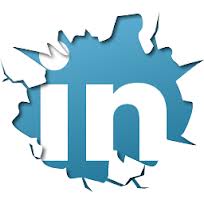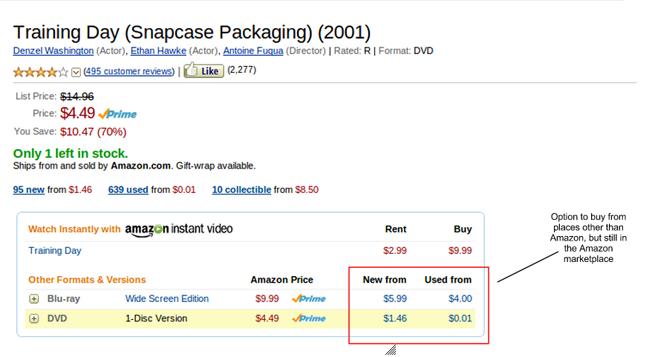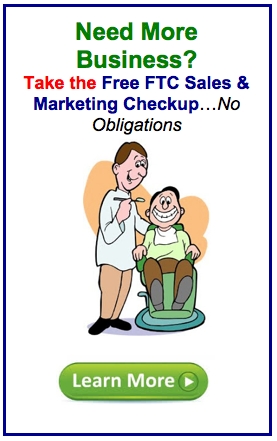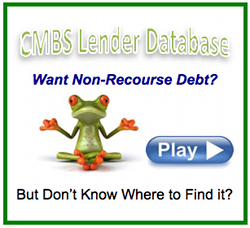Entrepreneurial Lessons from Mark Zuckerberg
Warning: Use of undefined constant user_level - assumed 'user_level' (this will throw an Error in a future version of PHP) in /home/zzgspc5zic0z/domains/findthecapital.com/html/wp-content/plugins/ultimate-google-analytics/ultimate_ga.php on line 524
 “How Did we Grow Our LinkedIn Presence to one of the…
“How Did we Grow Our LinkedIn Presence to one of the…
TOP 1% MOST VIEWED PROFILES on LinkedIn?”
Watch this FREE Video Presentation on how we used LinkedIn Build Several Multi-Million Dollar Companies….
About the Author: Zach Bulygo is a blogger for KISSmetrics, you can find him on Twitter here.
Bring up Mark Zuckerberg in conversation and you’ll hear a narrow range of conversational topics. People discuss his young age, wealth, Facebook’s early days, or his clothing choices. But what gets lost is his entrepreneurial abilities. Zuckerberg is a great CEO. He successfully made the transition from startup CEO to corporate CEO.
He didn’t do it without errors. Many have documented Zuckerberg’s mistakes. But what young CEO doesn’t make mistakes? It’s an important part of the job. Zuckerberg himself is quite honest about his slip ups and seems to embrace them.
Listen to Zuckerberg discuss the early days of Facebook, and you’ll hear him say that he knew he wanted to get into tech startups, but he never thought it was going to be Facebook. He figured a social network would be built by a big, multi-billion dollar tech corporation, not him. Now, nine years after Facebook’s launch, it has become its own multi-billion dollar empire. Facebook has done a lot of things right. It scaled well (unlike Friendster), has a great UI (user interface) (unlike MySpace), and always has been iterating, a trademark of many top companies.
There are a few things we can learn from Zuckerberg and his relatively short stint as CEO. Let’s look at what drives Zuckerberg and how his team at Facebook is changing the world for the better.
Businesses Need to Have a Higher Purpose
Facebook was never meant to be a company. In fact, in his letter to shareholdersit’s the first thing Zuckerberg writes:
“Facebook was not originally created to be a company. It was built to accomplish a social mission – to make the world more open and connected.”
He says at a later talk:
“I feel like it’s really hard to decide to start a company. [I didn’t start] Facebook to start a company, I started it because I really wanted this thing personally and I believed that it should exist globally although I wasn’t quite sure if we would be able to play a role in doing that. It was just mostly through wanting to build it and having it be this hobby and getting people around me excited that it kind of eventually evolved into and got the momentum to become a company.”
In a May 2012 interview with Forbes, Zuckerberg says:
“I often say inside the company that my goal was never to just create a company. A lot of people have been misinterpreting that as if I don’t care about revenue or profit or any of those things,” he continued. “That’s not actually it at all. You need to do those things to succeed in any meaningful way. Building a good economic engine is what allows all these other platform companies and advertisers and other partners to exist, and be a part of this ecosystem. Ultimately what not being just a company means to me, is just not being just that—building something that actually makes a really big change in the world.”
According to Zuckerberg, “Building a mission and building a business go hand in hand.” As stated, the mission of Facebook is to make the world more open and connected. This mission, of consumers having closer relationships with businesses, musicians, etc., and forming connections with others is why Facebook exists. The business aspect of Facebook is to serve advertisements to people who are interested and expose them to brands that may appeal to them. Thus, people connect and meet new people and businesses on Facebook. Facebook’s mission and business truly do go hand in hand.
Move Fast and Break Things
Zuckerberg says in his letter to shareholders:
“Moving fast enables us to build more things and learn faster. However, as most companies grow, they slow down too much because they’re more afraid of making mistakes than they are of losing opportunities by moving too slowly. We have a saying: “Move fast and break things.” The idea is that if you never break anything, you’re probably not moving fast enough.”
“Move fast and break things” is a motto that Facebook has become known for. Like Zuckerberg states, it means that if you aren’t making mistakes, you aren’t moving fast enough. He elaborates at Startup School:
“Most companies mess up by moving too slowly and trying to be too precise. When you’re…moving quickly or doing anything like this you want to make mistakes evenly on both sides. We wanted to set up a culture so that we were equally messing up by moving too quickly and by moving too slowly some of the time. So that way, we’d know that we were in the middle.”
What some people initially perceived as mistakes have turned into successes for Facebook. For instance, when the new News Feed launched, featuring top stories organized by the Edgerank algorithm, users became outraged. Facebook Groups were started demanding “Bring Back News Feed.” Eventually, Facebook found a happy medium for users when they made it possible for users to see their old news feed, while also keeping the new News Feed.
Another instance where Facebook upset many users was the integration of Timeline into user profiles. The first impression of Timeline was overwhelmingly negative for many users. In fact, they didn’t like being forced into using Timeline so much that a verb, Timelined, was born. Eventually, the user screams faded and everyone is adapting to Timeline.
These events aren’t unusual for Facebook. They consistently tick off their users, but in the end, the new feature turns out to be for the better. Some users are against product iteration, but iteration is what keeps Facebook modern and ahead of competitors. It’s also quite difficult to keep 800+ million people happy at all times.
There are many other things Facebook users have rebelled against. It’s a love-hate relationship. But after all is said and done, users ultimately find themselves not migrating to any other service. What all these user frustrations with Facebook have taught us is that users aren’t very good at predicting what they like at first sight.
The key with mistakes is distinguishing between the “false positive” mistakes and the real mistakes. For instance, Timeline would appear to be a “false positive” mistake, meaning that it appeared to be a huge mistake at first, but ultimately turned out to be a success. Then there are the real mistakes, like Beacon.
Ultimately, as Zuckerberg has pointed out, people won’t remember the mistakes years from now. They’ll remember the value that you provided.
Don’t be Afraid to Take Risks
“The biggest risk is not taking any risk.”
– Mark Zuckerberg
If you want to move fast and break things, you cannot shy away from risk. The biggest mistake you can make is not making any mistakes. As Zuckerberg says:
“In a world that’s changing really quickly the only strategy where you’re guaranteed to fail is not taking any risk and not changing anything.”
We’ve discussed some of the risks and mistakes that Facebook has made. There are countless other companies that have taken risks, some of which paid off and others that did not.
Google Buzz was a risk because social is not a core competence of Google. There were many similar solutions being offered at the time, and consumers didn’t adopt Buzz. It was a risk, and it didn’t pay off. Google Wave was a risk, too; because, while the concept may have been good, the product was complicated and difficult to explain. Those two projects took a lot of engineering hours, but it’s fair to say that Google learned from them.
One of the biggest risks taken by a major US corporation was Coca-Cola’s introduction of New Coke. Amid a shrinking market share, Coca-Cola introduced “New Coke.” Consumers didn’t like it and were vocal about their displeasure. That was a big risk for Coke – changing the formula for their top selling product. It’s a risk that didn’t pay off, but Coke has rebounded since then. They’ve eliminated “New Coke” and brought back “Classic Coke.”
Gmail was a risk for Google. Offering 1GB isn’t a big deal when you take into consideration how much cheaper storage space has gotten from just a decade ago. A new mail interface that broke away from conventional email interfaces was a risk. It caught people off guard – Google offering a mail program. It’s fair to say that this risk has paid off. Today, Gmail is the most widely used email provider.
Amazon is a company known for its risks. It is constantly experimenting and inventing, unafraid to fail. One big risk for them was letting other merchants sell through Amazon. It would allow a merchant to undercut Amazon’s price, which would lead to fewer sales for Amazon.
Yet Amazon took the risk because it’s better for customers. And with Amazon having an annual run rate of $50 billion, it’s hard to say it failed. It was a risk that has paid off.
If you’re afraid to take risks, you won’t innovate. Facebook has taken a lot of risks and not all of them have paid off. You have to have a willingness to fail, because it’s a normal part of the business process.
Find People Who Complement Your Skills
Zuckerberg knows that for any business to be successful, you need to have a great team. He says that “The most important thing for you as an entrepreneur trying to build something is, you need to build a really good team. And that’s what I spend all my time on… I spend probably 25 percent of my time recruiting, finding good people, both outside the company and inside the company, to put them in more impactful roles.”
Zuckerberg is a hacker and product person, not a business person. In high school he built a music player. He wasn’t starting businesses. Later, he even turned down multi-million dollar offers from AOL and Microsoft, who wanted to buy the software and hire him.
So in the early days of Facebook, knowing he wasn’t good with business (he wore a hoodie to VC meetings), he recruited and hired Sheryl Sandberg, an executive at Google. According to a New York Times article:
“Ms. Sandberg has focused on building the business, expanding internationally, cultivating relationships with large advertisers and putting her polish on things like communications and public policy. That has freed Mr. Zuckerberg to focus on what he likes best: the Facebook Web site and its platform.”
Others have noticed Facebook’s success while Sandberg has been Zuckerberg’s number two.
On hiring, team building, and finding venture capitalists, Zuckerberg says it’s important to find people who are aligned with your vision. Once Zuckerberg didn’t sell out to multi-billion dollar offers, he had to let many people go. They were more focused on making money and less focused on building something for the long term.
You need to work on hiring a team that is aligned with your vision. Some will be motivated by making money and others by building a long term product. That is why, when Zuckerberg discovered that some weren’t aligned with his vision, he had to let them go.
It can be difficult to discover who’s who. At Facebook, it took turning down multi-billion dollar offers to discover who wanted to sell out and who wanted to build a long term product.
In a video posted on the Facebook careers page, Zuckerberg says:
“The reason why we’ve built a company is because I think a company is by far the best way to get the best people together and align their incentives around doing something great.”
The only way to do something great is if people are aligned with the same vision. Each team member needs to complement each other’s skills. As we’ve pointed out, Sandberg is leading Facebook’s business. Other people run sales, marketing, engineering, hardware, etc. There is not one person who runs it all.
The goal is to hire people who are smarter than you and are experts in their own domains. They don’t need to be good at dozens of different things, but rather really good at one thing.
Growth Should be a Core Competence
Zuckerberg says that once you have a product you’re happy with, you should centralize things like a growth team. At Facebook, they were called the “Spread Facebook” team, and their only job was to get people to sign up and use Facebook.
One thing that the growth team at Facebook discovered was that a new signup needs 10 friends in order to stay engaged and keep coming back to Facebook. If they have any fewer than 10 friends, there isn’t enough content for them to keep coming back to see their News Feed. Once Facebook had this information, it removed a lot of the unnecessary red tape from the new user setup and helped the beginners discover people they might know.
Zuckerberg says it’s different for every company:
“It’s going to be different things for different companies, but I think for each of your companies once you get a core product that you’re happy with, I think it’s worth going through and having the discipline to do this exercise.”
You can find a good write up about Facebook’s user growth that Andy Johns, former Facebook user growth employee, provided on Quora.
Stay Focused on Your Product and Don’t Worry about Mistakes
As we’ve mentioned, Zuckerberg and his team at Facebook focus on moving fast and making mistakes. It’s his philosophy that people won’t remember the mistakes you make in the long run.
In an interview with Charlie Rose, Sheryl Sandberg says:
“We are a hacking culture…..we build things quickly and ship them. We are not aiming for perfection that comes over years and then we ship a product. We don’t work on things for years and then ship it. We work on things, we ship them, we get feedback from the people who use it, we get feedback from the world, we iterate. We have these great signs around [the office], ‘Done is better than perfect’, ‘What would you do if you weren’t afraid?’…we’re a culture of very rapid innovation.”
Zuckerberg later says:
“We place a really big premium on moving quickly. One of the big theories that I had about that, was that all technology companies, and probably all companies, just slow down dramatically as they grow. But if we can focus at every step along the way on moving quicker…then we’ll move as quickly as a company that only has 500 people, because we’ve invested so much in building up the infrastructure and tools and also the culture that tells people to take risks and try things out. I just think that that ability to build stuff quicker will be a big advantage for us and will help us build better products over the long term.”
In a talk at Startup School 2011, Zuckerberg says that entrepreneurs need to stay focused on providing value for users. He says:
“There’s like 1000 things going on at any point in given time [at Facebook], and there’s like one or two that actually matter. You need to focus on those….probably the most inspiring surprising thing is that you can be so bad at so many things, and learn along the way, and as long as you stay focused on how you’re providing value to your users and customers and you have something that is unique and valuable and you understand and that you’re providing, then you get through all that stuff….you have time to learn, you’re not going to know everything going into it up front, and that’s okay. Just stay focused on the stuff that you’re providing to your users. You’re going to make a ton of mistakes, it doesn’t matter. You don’t get judged by the mistakes, people don’t remember those years from now, they remember the things that you did that were good.”
Other Good Zuckerberg Tidbits:
- On being a CEO: “I’ve always focused on a couple of things,” Zuckerberg said. “One is having a clear direction for the company and what we build. And the other is just trying to build the best team possible toward that … I think as a company, if you can get those two things right—having a clear direction on what you are trying to do and bringing in great people who can execute on the stuff—then you can do pretty well.”
- Zuckerberg says it’s “fundamentally valuable” that the people who are making the product decisions also understand all the technical tradeoffs. “Having a company, where you have the same people thinking through the product challenges and the experience you’re trying to create, all the way down the stack to actually implementing it is a really critical thing.”
- Listen to your users, both qualitatively and quantitatively. Even when you get as big as Facebook.
- Keep in mind that you’re not as good as people say, and you’re not as bad as people say. Zuckerberg explains that if Facebook is hitting a rough patch with the media and outsiders, he’ll remind his team that they’re not as bad as the press says they are. When Facebook is being praised, he’ll remind his team that they’re not as good as people say they are. Find the equilibrium.
- Recommended reading: Zuckerberg’s letter to shareholders and Facebook Engineering Director, Andrew Bosworth’s, “Working with Zuck.”
It’s exciting to think of where he’ll take Facebook in the next few years and decades. He’ll prove his worth as one of the great tech CEOs, and there will be plenty more to learn from him.
Anything you would like to add about Zuckerberg? Let me know in the comments!









